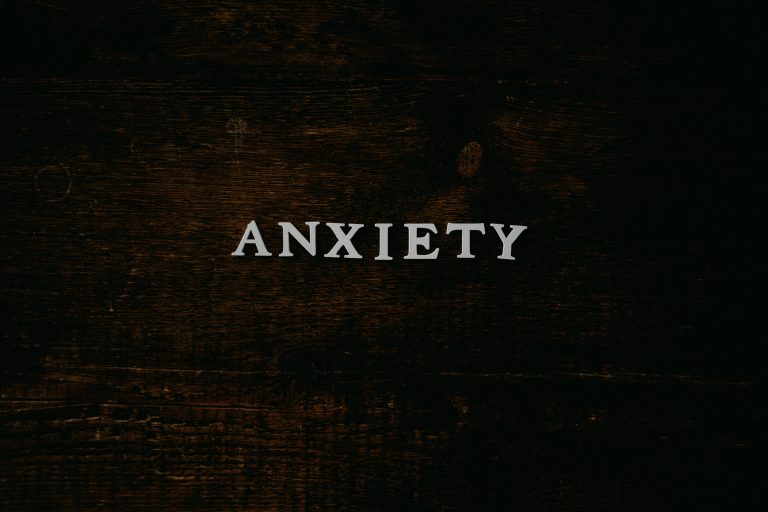What’s the Difference Between a Panic Attack and an Anxiety Attack?

You’ve probably heard the terms “panic attack” and “anxiety attack” used interchangeably, but did you know there are distinct differences between the two? Understanding these disparities can offer valuable insights into how to manage and cope with these overwhelming experiences. Let’s dissect the nuances between panic attacks and anxiety attacks, shedding light on their unique characteristics and implications for those who may struggle with these challenging mental health episodes.
Definition of Panic Attack and Anxiety Attack
Understanding the difference between a panic attack and an anxiety attack is crucial for recognizing and managing these distinct psychological experiences. Mental health is at the core of these conditions, affecting one’s emotional response to stressful situations. A panic attack is an abrupt surge of intense fear or discomfort that peaks within minutes. It can manifest with physical symptoms such as a racing heart, sweating, trembling, and a sense of impending doom. Panic attacks often occur unexpectedly and can be debilitating, leading to a feeling of losing control. On the other hand, an anxiety attack involves feelings of excessive worry, nervousness, or unease about future events. Unlike panic attacks, anxiety attacks develop gradually and are more related to specific stressors. They can also include physical symptoms such as fatigue, muscle tension, and difficulty concentrating. Understanding these distinctions is fundamental in providing appropriate support and interventions for individuals experiencing these challenges in their mental health journey.
Symptoms of a Panic Attack
During a panic attack, your body undergoes a sudden and overwhelming response to fear or stress, triggering a cascade of intense physical and emotional symptoms. Physical symptoms can include heart palpitations, sweating, trembling, shortness of breath, chest pain, nausea, and dizziness. You may also experience a sense of impending doom or a fear of losing control. Emotionally, you might feel extreme fear, a detachment from reality, or like you’re having a heart attack.
Managing symptoms of a panic attack involves deep breathing exercises, focusing on grounding techniques, and practicing mindfulness to help regain control over your body’s response. It’s essential to create a calming environment and remove yourself from triggering situations if possible. Additionally, seeking support from a therapist or counselor can provide coping mechanisms and strategies to navigate through panic attacks.
When considering treatment options, therapy such as cognitive-behavioral therapy (CBT) can be highly effective in addressing panic attacks. Medications like selective serotonin reuptake inhibitors (SSRIs) or benzodiazepines may also be prescribed in severe cases. It’s crucial to consult with a healthcare professional to determine the most suitable treatment plan tailored to your needs.
Symptoms of an Anxiety Attack
Anxiety attacks typically involve a prolonged period of heightened worry and apprehension, accompanied by various physical and emotional symptoms. Physically, you may experience symptoms such as a racing heart, sweating, trembling, and shortness of breath. These sensations can be overwhelming, leading to feelings of dread and a sense of losing control. Emotionally, anxiety attacks can manifest as intense fear, restlessness, irritability, and difficulty concentrating.
To manage these symptoms, breathing exercises and mindfulness techniques can be beneficial in calming your mind and body during an anxiety attack. Additionally, seeking support from mental health professionals who specialize in cognitive behavioral therapy can provide you with tools to challenge negative thought patterns and cope with anxiety more effectively. In some cases, medication options may also be considered to help alleviate symptoms and improve overall well-being. It’s important to remember that there are effective strategies and treatments available to help you navigate through the challenges of an anxiety attack.
Onset and Duration Differences
When differentiating between panic attacks and anxiety attacks, one key aspect to consider is the variances in their onset and duration. Panic attacks typically have a sudden onset, reaching peak intensity within minutes. They can last anywhere from a few minutes to around 20 minutes, with residual symptoms sometimes lingering for a longer period. On the other hand, anxiety attacks tend to have a more gradual onset, building up over time in response to stressors or triggers. They can last for a more extended period, ranging from hours to days, and may fluctuate in intensity during this time.
Understanding these differences is crucial for effective treatment approaches. Panic attacks often require immediate intervention to manage acute symptoms, while anxiety attacks may benefit from longer-term strategies such as therapy and lifestyle changes. The impact on daily life also varies, with panic attacks causing sudden disruptions and anxiety attacks potentially leading to prolonged periods of heightened worry and stress. Recognizing these distinctions can help individuals seek appropriate help and support to manage their symptoms effectively.
Triggers for Panic Attacks
Understanding the triggers that can precipitate panic attacks is essential in managing and mitigating their occurrence. Environmental factors play a significant role in triggering panic attacks. For individuals with a genetic predisposition, certain environmental stressors such as loud noises, crowded spaces, or extreme weather conditions can act as triggers. Social situations can also be potent triggers for panic attacks. Being in situations where one feels judged, scrutinized, or overwhelmed by social interactions can lead to heightened anxiety and panic. Moreover, past trauma is a crucial trigger for panic attacks. Traumatic experiences can create deep-seated emotional responses that, when triggered by similar situations or reminders of the trauma, can result in a panic attack. Understanding these triggers and their impact on individuals is vital in providing support and guidance to help manage and alleviate the effects of panic attacks.
Triggers for Anxiety Attacks
Triggers for Anxiety Attacks can stem from various sources, including a complex interplay of internal and external factors that contribute to heightened states of distress and unease. Internal triggers may involve excessive worry, fear of the unknown, or negative self-talk, while external triggers could include stressful life events, work pressure, or relationship conflicts. Understanding these triggers is crucial in managing anxiety effectively.
Stress management plays a pivotal role in mitigating anxiety triggers. Learning to identify stressors and implementing healthy coping mechanisms can help reduce the likelihood of an anxiety attack. Mindfulness techniques, such as deep breathing exercises, meditation, and grounding techniques, can also aid in interrupting anxious thought patterns and promoting a sense of calm.
Coping Strategies and Treatment Options
Implementing effective coping strategies and exploring various treatment options are essential steps in managing and alleviating symptoms of anxiety attacks. When dealing with anxiety, relaxation techniques such as deep breathing, progressive muscle relaxation, and visualization can help calm the mind and body during an attack. Mindfulness exercises, like meditation and yoga, can also promote awareness and reduce stress levels, aiding in anxiety management.
Therapy options such as cognitive-behavioral therapy (CBT) are highly effective in treating anxiety disorders by helping individuals identify and change negative thought patterns and behaviors. Additionally, seeking support from a therapist or counselor can provide a safe space to explore underlying issues contributing to anxiety.
Medication options, such as selective serotonin reuptake inhibitors (SSRIs) or benzodiazepines, may be prescribed in severe cases to help manage symptoms. It’s crucial to consult a healthcare professional to determine the most suitable treatment plan tailored to your specific needs. Remember, finding the right combination of coping strategies and treatment options is key to effectively managing anxiety attacks.
For anyone facing health or mental health concerns, Empire Psychiatry in New York offers a supportive and expert environment for care and recovery. With a team of top-rated professionals and a comprehensive range of services tailored to meet individual needs, Empire Psychiatry is equipped to help individuals overcome their challenges and achieve optimal mental health. If you or someone you know is struggling, remember that help is available. Empire Psychiatry is the perfect place to call for compassionate, effective support and treatment.
Frequently Asked Questions
Can Panic Attacks Be Mistaken for Heart Attacks?
When panicking, symptoms like chest pain and shortness of breath can mimic a heart attack. Confusion may arise, leading to heart attack confusion. Remember, during a panic attack, your body reacts intensely, but it’s not life-threatening like a heart attack.
Are Anxiety Attacks Always Related to Stress?
Anxiety attacks can have various triggers beyond stress, such as genetic predisposition or trauma. Underlying medical conditions can also contribute. Effective coping mechanisms are essential to manage anxiety attacks regardless of their root cause.
Can Certain Foods Trigger Panic Attacks?
Certain foods can trigger panic attacks due to dietary triggers or food sensitivities. Ingredients like caffeine, alcohol, and certain additives may exacerbate symptoms. It’s important to monitor your diet and consult a healthcare provider for guidance.
Are Panic Attacks More Common in Certain Age Groups?
As you explore the prevalence of panic attacks across age groups, consider that risk factors can vary, potentially increasing susceptibility. Treatment options, such as therapy and medication, are available to address symptoms effectively and support recovery.
Can Exercise Help Alleviate Symptoms of Anxiety Attacks?
To alleviate symptoms of anxiety attacks, incorporating exercise into your routine can positively impact your mind-body connection. Engaging in physical activity can help regulate stress hormones, improve mood, and promote relaxation through breathing techniques, aiding in anxiety management.

